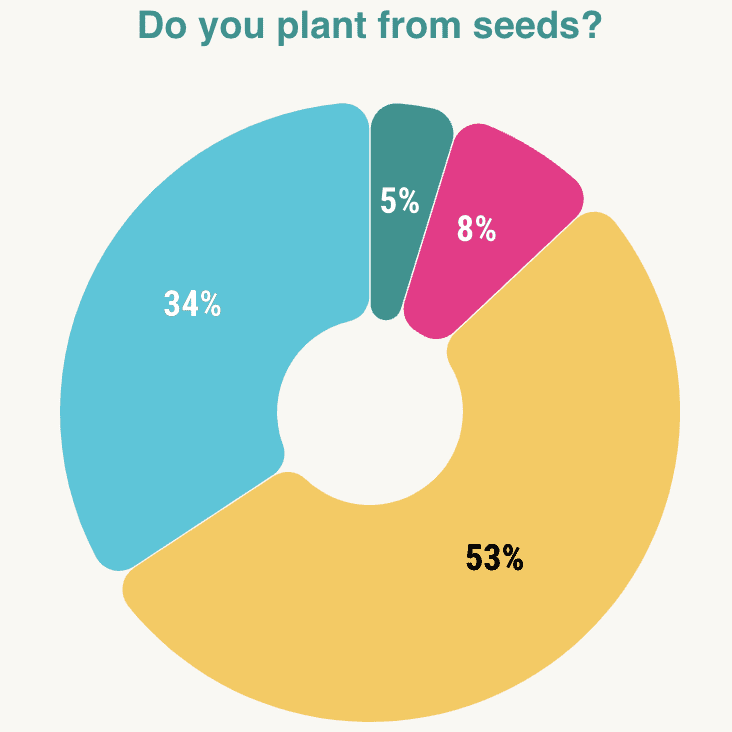
We Asked
- If a plant is non-native, do you consider it invasive?
- If a plant is non-native, can it also be beneficial or non-damaging?
- Do you think native plants are inherently messier or less visually appealing than other plants?
Consumers Answered
Our survey revealed a nuanced understanding among gardeners when it comes to the debate over native versus non-native plants. A majority, 60.42%, do not automatically equate non-native plants with being invasive, showing a more informed perspective that challenges a common misconception. Interestingly, 18.74% do consider non-native plants invasive, while 20.84% remain uncertain, indicating a need for further education on the topic.
When asked if non-native plants could also be beneficial or non-damaging, an overwhelming 82.67% responded affirmatively, underscoring a strong recognition of the potential positive roles that non-native species can play in gardens and ecosystems. Only a small fraction, 3.98%, rejected this idea, and 13.35% were unsure, highlighting the complexity of gardeners’ views on this issue.
If a plant is non-native, do you consider it invasive?
If a plant is non-native, can it also be beneficial or non-damaging?

Interpreting mixed signals is not easy when planning for 2024
- Check back for updates to this particular Insight in Jan/Feb, sentiments will have likely changed
- Be clear about the reasons for having increased your prices
- Consumer balance sheets are still reasonably strong, but the trend is down – consider a strategy to sell to capacity as early as possible in 2023, before consumers are running out of cash and are forced to turn to credit.
By Demographics
The rest of this insight is for members only, please Sign In or Sign Up to continue.
Join Now

Do you think native plants are inherently messier or less visually appealing than other plants?
Join Now
More Premium Insights coming soon.


